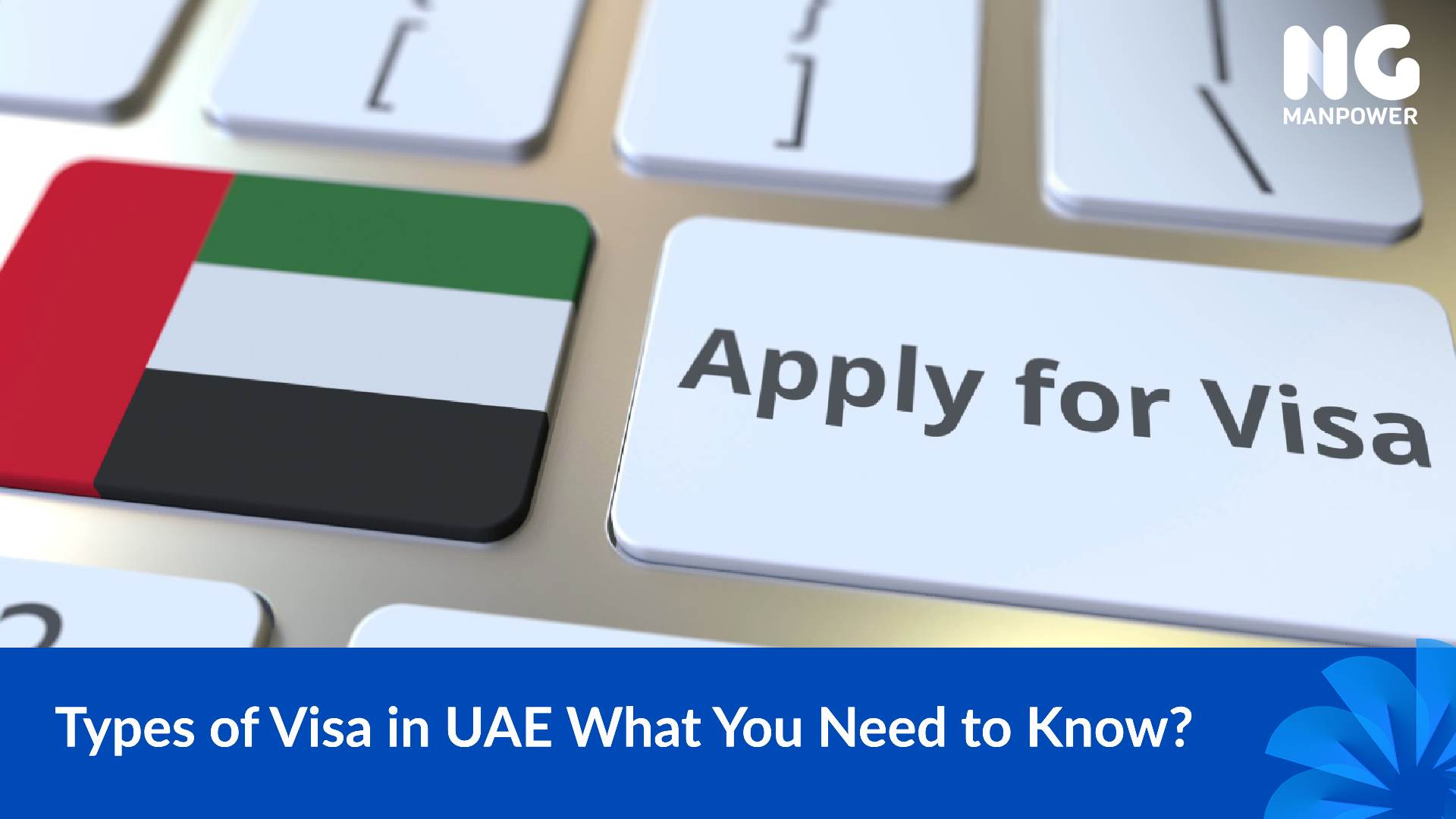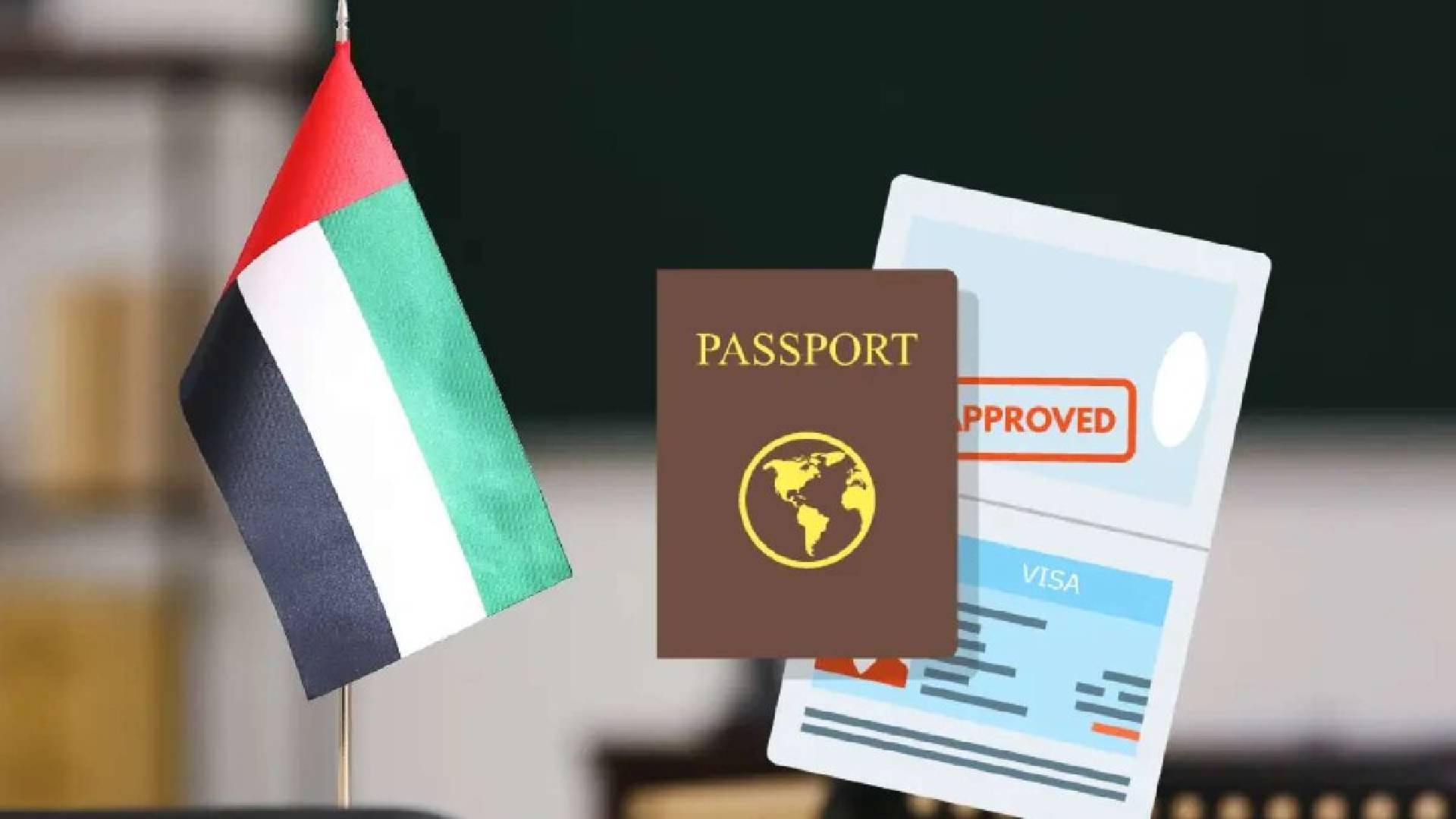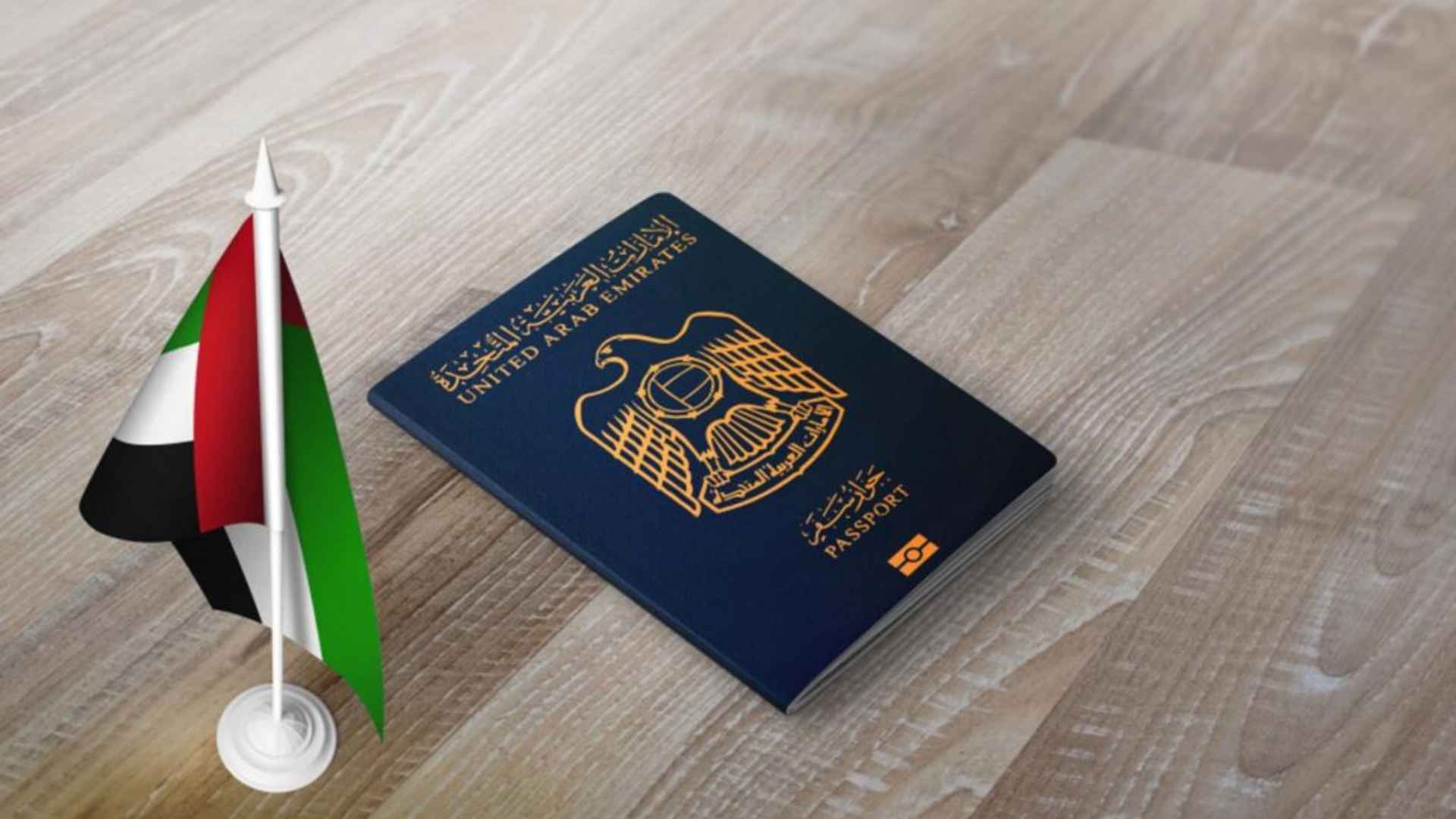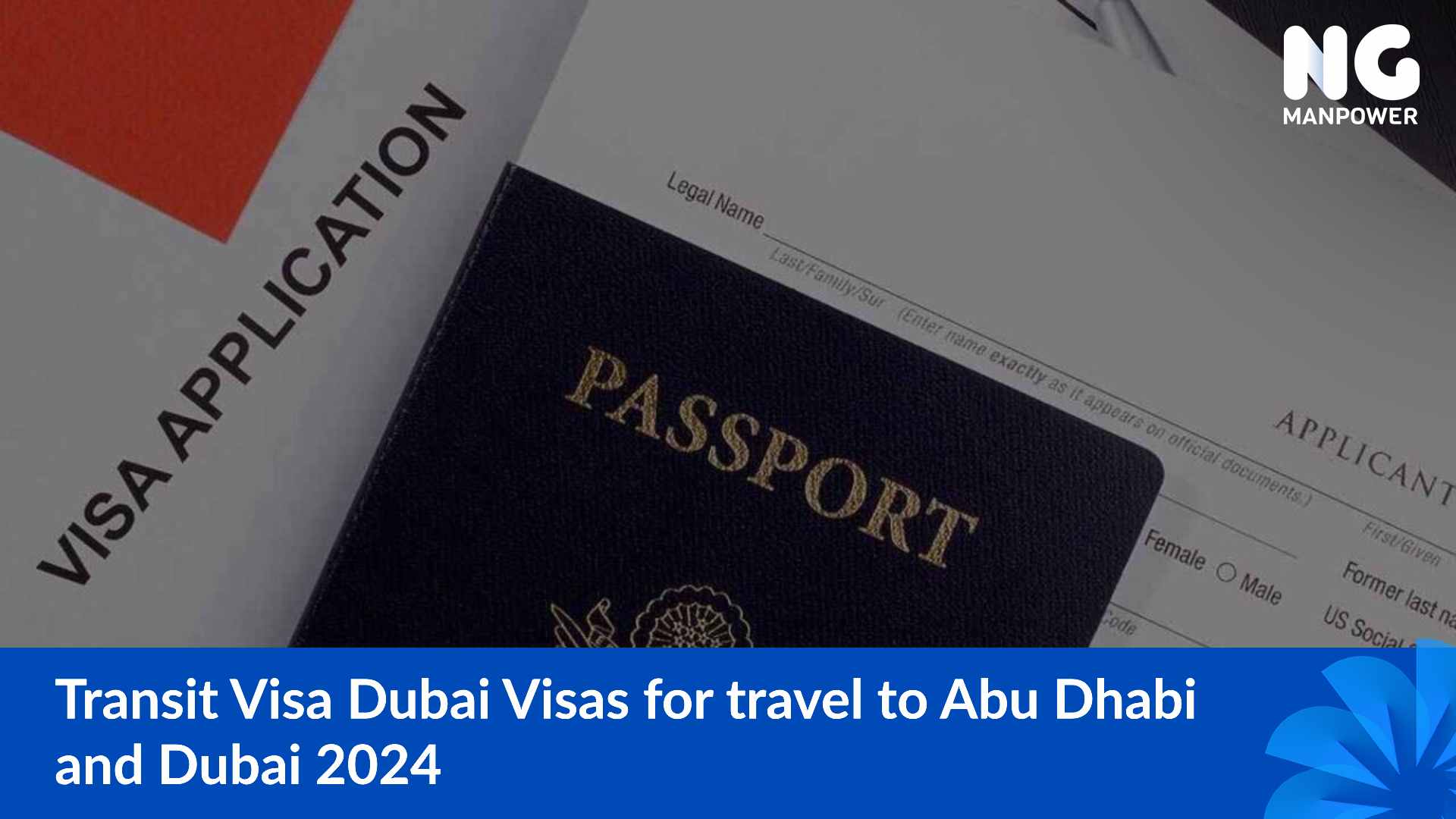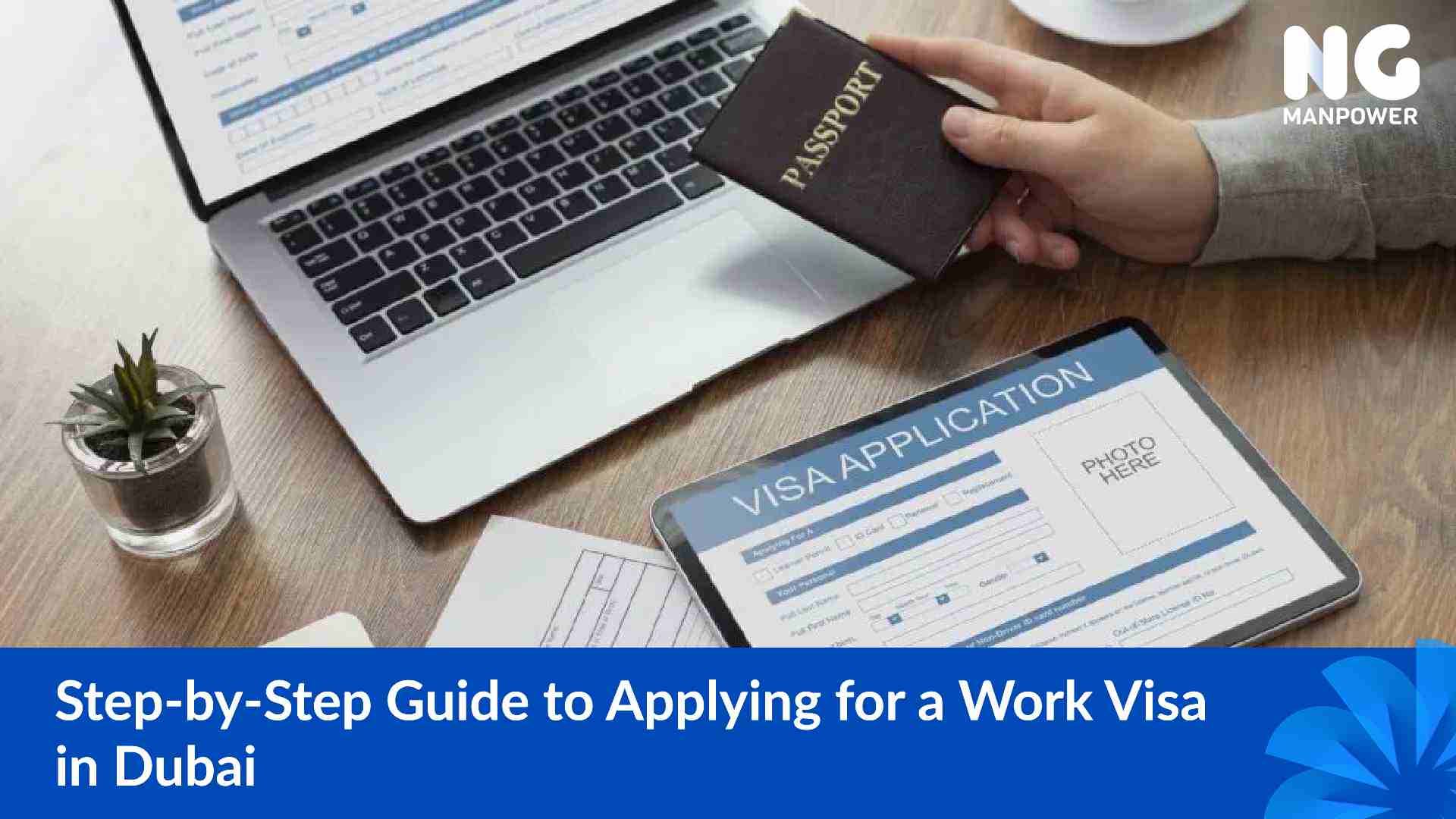There are various types of visas in UAE that cater to the individual’s diverse needs when they plan to travel to UAE for a job, study, tourism, or residence. Understanding them in detail is crucial as it will help individuals fulfill the requirements for the visa efficiently.
It is crucial for everyone whether it’s a tourist, a working professional seeking employment opportunities, or an individual who wants to extend the stay, to understand the UAE visa types and nuances they have.
Through this article, we will highlight the types of visas in the UAE along with all the details for eligibility criteria, processes for application, and each visa category’s specific features.
Explore Working Opportunities In The UAE Through an Employment Visa
If you want to explore professional careers in the UAE, you have to understand the various visa types in UAE like employment visas. It acts as your gateway to UAE’s working opportunities.
You can unlock diverse professional opportunities through an employment visa in the UAE. The visa is particularly for individuals who want to work in the thriving business landscape through lawfully regulated working procedures.
Employment visas let you join multinational corporations, serve local companies, or work as a freelancer in the rich and diverse professional environment of the UAE. The intricacies of the employment visa and its application process must be understood and employees are also required to communicate with their employers for:
- Gathering and submitting the documents required
- Stick to the guidelines provided by the UAE immigration authorities
- Confirm their employment status
- Draft the employment contract with appropriate legal terms and conditions
Employment visas are not only about facilitating work but also about ensuring compliance with legal and security standards. The stringent application process, including background checks and verification of qualifications, contributes to a secure and regulated work environment. This commitment to compliance enhances the overall integrity of the employment visa system.
Legal and compliant employment through the UAE’s visa system not only attracts a global talent pool full of skilled professionals, but also fosters knowledge exchange, develops innovative ideas, and avails services from experts across various sectors.
Renewing and Extending Your UAE Employment Visa
Individuals can continue their professional journey in the UAE by renewing and extending their UAE employment visas. That is why it is important to go through all the requirements and prerequisites for visa renewal and extension in the UAE.
An individual starts the process of renewing an employment visa through effective employee-employer communication and reaching out to the relevant authorities. The renewal process must kick off as soon as the expiration date of the employment visa is near to make sure there is a seamless process for it. Not only it will protect an individual’s work routine from disruption but also shows that an individual respects the UAE laws and regulations regarding visa application.
Individuals are required to stay compliant and this includes providing information on conditions, such as salary and working hours, and submitting their specific documents for the visa renewal process including:
- A valid current employment contract
- A valid passport copies
- An updated medical fitness certificates
- A copy of the work permit
Besides that, you must know the UAE visa types and extension fees. The fee can vary according to the type of visa, the renewal duration, and any kind of required additional services. Staying informed about the cost implications ensures that individuals and employers can allocate resources accordingly.
Sponsorship and Work Contracts in the UAE
Sponsorship and work contracts in the UAE are fundamental components of the visa system. They play a pivotal role in facilitating legal residence and employment for individuals. Understanding the dynamics of sponsorship and work contracts is crucial for those navigating the UAE visa types and fees.
The sponsor is assumed to take responsibility for an individual during their UAE stay. A sponsor also oversees all legal matters and guarantees the individual’s actions. In the case of employment visas, the sponsor will be an employer, and that is the reason your employment and legal residence in UAE heavily rely on your company or employer.
Furthermore, a work contract is a formal agreement between the employer and the employee, outlining the terms and conditions of employment. This document serves as a blueprint for professional engagement and is also a prerequisite for obtaining an employment visa. Work contracts detail crucial aspects such as job responsibilities, salary, working hours, and the duration of employment. Everyone needs to agree upon the terms outlined in the contract to ensure a harmonious working relationship.
In cases where individuals experience changes in employment or sponsorship, it is essential to navigate these transitions by regulations. This might involve a change in sponsorship due to a job switch or a transfer of sponsorship in the case of family members.
Sponsorship Transfer and Changing Employers
Navigating the intricacies of UAE visa categories involves a critical understanding of sponsorship transfer and changing employers, especially within the diverse types of visas in Dubai. Success in these processes hinges on a comprehensive grasp of specific visa categories and associated regulations. Whether it is transferring sponsorship for employment reasons or adapting to changing circumstances, a clear understanding ensures a seamless transition.
For individuals seeking employment opportunities, comprehending sponsorship transfer is crucial when changing jobs or employers. This process demands adherence to specific guidelines and documentation to facilitate a smooth transition. Understanding the nuances of work contracts and sponsorship obligations is fundamental, to ensuring compliance with UAE laws.
By being cognizant of sponsorship transfer procedures and the implications of changing employers within the UAE’s visa landscape, individuals can navigate these processes confidently and by regulatory requirements. This empowers individuals to make informed decisions and facilitates a smoother transition within the dynamic environment of UAE visa categories.
Resident Visas: Making UAE Your Home
Resident visas play a pivotal role in making the UAE your home, encompassing various Dubai visa types tailored to meet the diverse needs of individuals seeking long-term stays. Understanding the nuances of resident visas is essential for those looking to establish a more permanent presence in the UAE.
Firstly, resident visas offer a pathway to make the UAE home. This helps provide individuals with the opportunity for extended stays beyond short-term visas. These visas are designed to accommodate different purposes, such as employment, family reunification, or even retirement.
Moreover, to navigate the realm of resident visas successfully, individuals need to actively acquire in-depth knowledge about the specific criteria and regulations that govern their selected visa category. By gaining a comprehensive understanding of resident visas and their associated processes, individuals can make informed decisions.
Renewing Your UAE Resident Visa
Renewing your UAE resident visa is a pivotal and routine step that ensures your continuous legal stay in the country. As your current visa approaches expiration, engaging proactively in the renewal process becomes paramount for a smooth transition. Furthermore, to facilitate this, it is crucial to familiarize yourself with the criteria and initiate the process well in advance.
Firstly, start the renewal process by compiling all necessary documents promptly. This step typically involves the submission of paperwork, and in some cases, may include medical examinations. The examinations aim to assess your health and well-being, constituting a standard part of the renewal protocol.
In addition to document compilation, settling any outstanding fees is crucial for a hassle-free renewal experience. This financial aspect is an integral part of the renewal process and should be addressed promptly to avoid any complications.
Moreover, actively participating in the renewal procedures ensures that you can continue to enjoy the privileges of residing in the UAE. Staying informed about any updates or changes in renewal requirements is essential for navigating the process effectively. The dynamic nature of visa regulations makes it imperative to stay abreast of any modifications to ensure a smooth renewal.
Benefits and Privileges of Being a UAE Resident
Embracing UAE residency not only represents a legal status but also offers an array of benefits and privileges. This helps cater to the diverse needs and aspirations of individuals across different Dubai visa types.
One prominent advantage is the expanded scope of employment opportunities. UAE residents enjoy access to a wider job market, fostering professional growth and career development. This extends to business ownership, enabling residents to establish and operate their ventures within the country.
Also, the healthcare system in the UAE is recognized globally, and there are world-class medical facilities for residents. Employers sponsor healthcare insurance and through it, employees are provided with comprehensive health coverage that emphasizes the overall well-being of individuals and residents.
The UAE government is eager to provide a safe and secure environment to live and the crime rates are very low in the UAW. Public spaces are well-maintained so families can enjoy and feel secure outside their houses as well.
What Is The Policy For UAE Residency and Taxation?
Understanding the relationship between UAE residency and taxation is crucial for individuals navigating the diverse visa categories available in the country. There are tax implications in the UAE that vary according to the type of visa in UAE, and that is why it is of utmost necessity to be well-aware to ensure following the regulations and compliance.
There is no income tax for residents of UAE. However, tax obligations are imposed on individuals who are in the UAE temporarily based on their income.
For those seeking long-term residency through visa categories like the Golden Visa, understanding the potential impact on global taxation becomes paramount. These individuals may need to navigate tax regulations in both the UAE and their home country, ensuring they meet all necessary reporting requirements.
On the other hand, shorter-term visa categories, such as employment visas, may not trigger additional tax obligations in the UAE. Still, individuals should remain cognizant of their home country’s tax laws to avoid any unexpected liabilities.
If you want to read more interesting and informed articles about this and other topics, be sure to visit our insights. Moreover, if you are looking forward to knowing more about our services reach out today and head up to our contact section.

